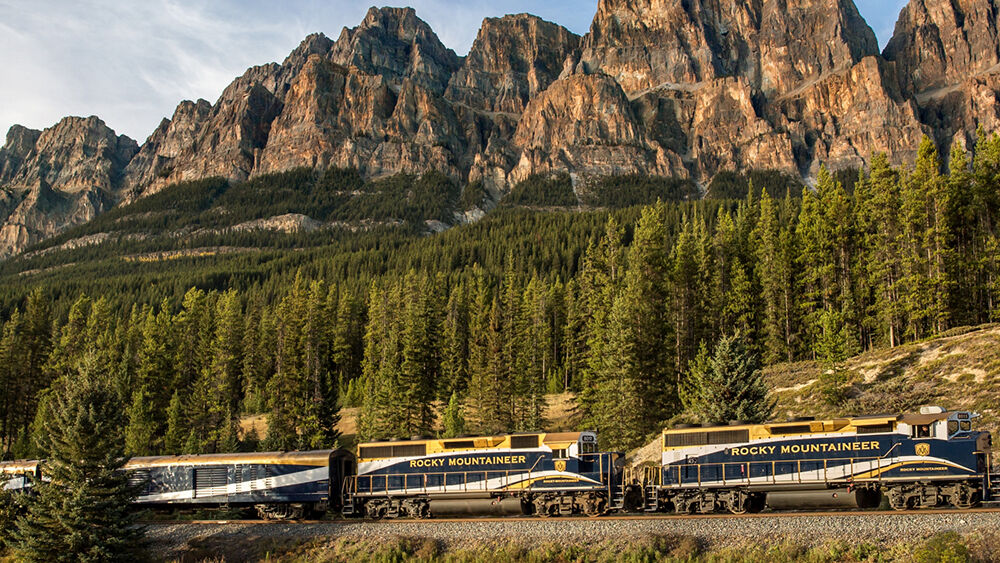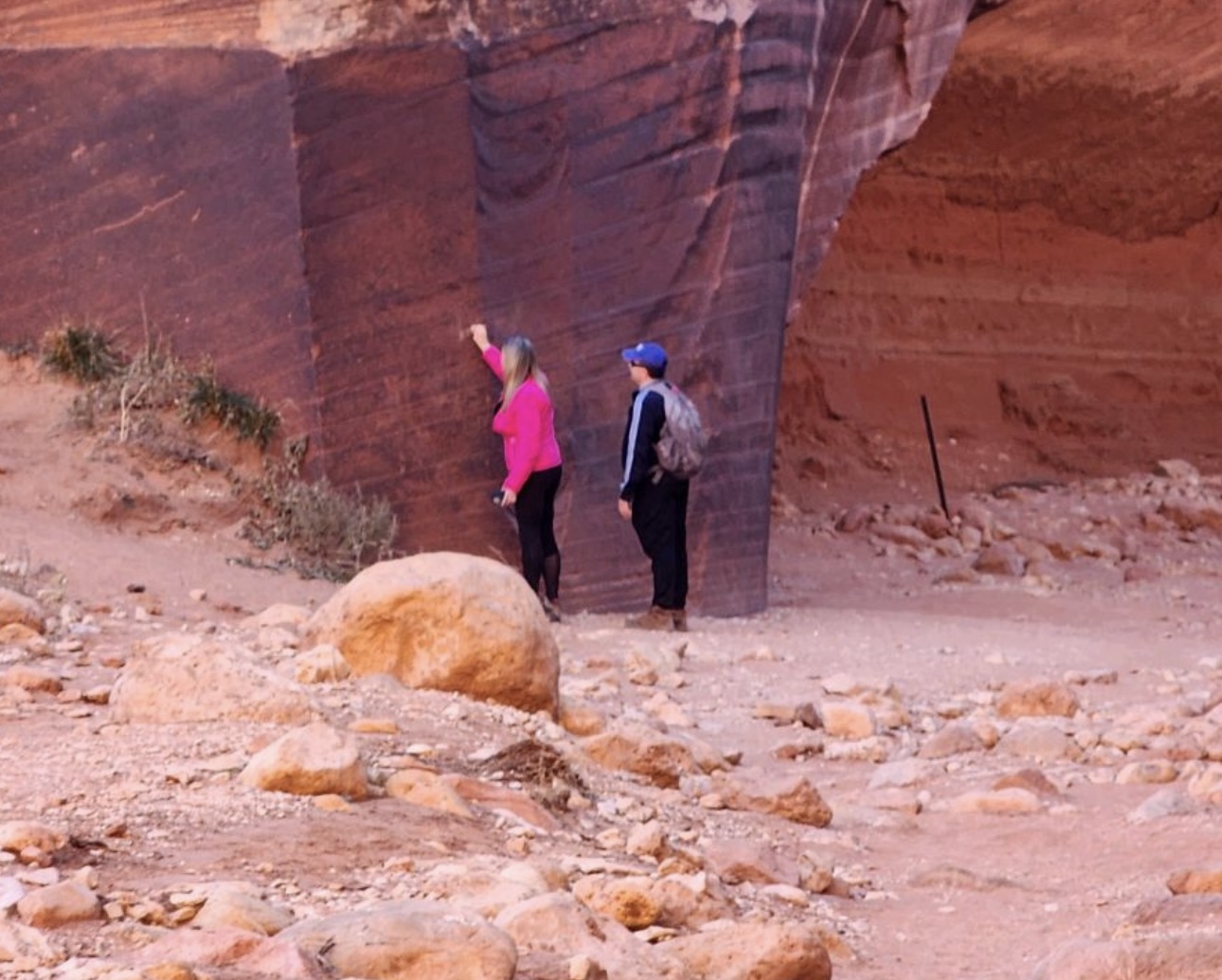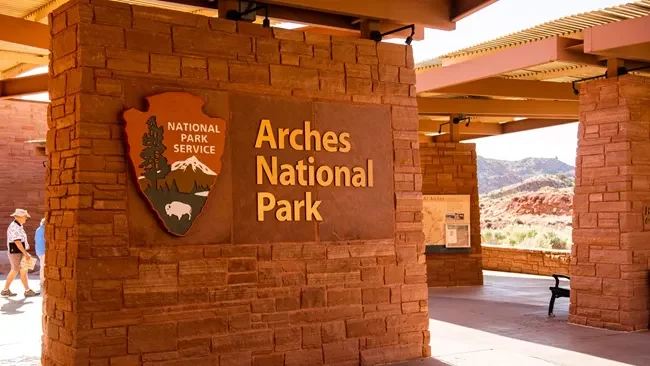Some information may be outdated.
A luxury train travel company is moving ahead with a new route between Denver and Moab, despite an ongoing legal dispute with Grand County over required documentation for operating the business in Grand County. The company has filed a complaint which is currently at the Central Division of Utah District Court.
Plans for the new route have been underway since 2020 [See “Luxury train heads to Moab,” Jan. 14 edition. -ed.] and the Rocky Mountaineer has already made trial runs of the route earlier this month to help staff prepare for trips with paying passengers.
“It was a very exciting moment to finally see the train in the area and we are looking forward to welcoming guests on August 15,” said Tessa Day, spokesperson for the Rocky Mountaineer.
According to Rocky Mountaineer, each trip will have up to 350 passengers on up to 14 custom-designed railcars with domed windows to allow guests to catch wide views of mountains and canyons along the route. Trip packages for the train start at $1250 per ticket, which includes an overnight stay in Glenwood Springs, Colorado.
The Vancouver-based rail-tour company has an agreement with the Union Pacific Railroad Company to use its rail lines for the tour and is also leasing property along Highway 313 from Union Pacific and Intrepid Potash Mine for a passenger unloading site. For now, no permanent infrastructure is planned for the unloading site.
“This will be a quick transition—guests will de-train and go onto motorcoaches for the transfer to downtown Moab,” Day said.
That unloading site is the point of contention between Rocky Mountaineer and Grand County.
Grand County officials assert that the company must apply for a conditional use permit and a business license from the county to operate at the leased loading and unloading site. To get those items, Rocky Mountaineer would need to supply documentation of various inspections and approvals, or statements that specific county requirements aren’t necessary in the case of the passenger unloading location.
On July 1, Rocky Mountaineer filed a complaint with Utah District Court requesting a declaratory judgement from the court stating that two federal laws preempt these requirements by Grand County: the Interstate Commerce Commission Termination Act of 1995, which established the Surface Transportation Board, a federal body that has regulatory oversight of railroads; and the Federal Railroad Safety Act, which assigns responsibility for railroad safety to the Federal Railroad Administration.
The county’s legal answer to Rocky Mountaineer’s complaint stated that under the county’s land use code the company needs to comply with seven requirements, including a letter from Union Pacific approving Rocky Mountaineer’s use of the rail line, and an access permit from the Utah Department of Transportation, which could require a traffic analysis.
Other county requirements include a statement that no public services would be needed at the passenger unloading location; a statement that no facilities will remain on site after the close of business each day (to demonstrate that a security plan is not needed); and a statement that no infrastructure is being built, and thus no reclamation plan is needed.
In its complaint, Rocky Mountaineer said that Union Pacific will add gravel to the leased property to level highway access and vehicle turn-around areas, but that no structures of any kind will be located at the passenger loading and unloading site. Rather, the company will place temporary signs and carpets at the site during business operations, and remove them from the site when it’s not being used.
Grand County’s legal answer to the complaint said that Rocky Mountaineer had represented that model as “its initial plans in 2021 with an implication that the site would be further improved in the future.”
The county also requires that the company submit a site plan showing legal access; parcel size; ownership of affected parcels; any land use conflicts or impacts; a depiction of bus turn-arounds, drop-off sites, loading and unloading sites; legal access to titled parcels, hard surface modifications and drainage implications; and a statement that no other services or construction are planned.
As of July 21, Grand County officials said they have received none of the requested documentation. The company’s complaint indicates it believes that federal laws preempt the county’s ordinances, and so none of the requested documentation is legally required.
Day said she was not able to comment on the legal situation or whether it would affect the company’s plans to begin service in August.
County Attorney Christina Sloan said the county documentation requirements are far from an indication that the county doesn’t welcome the new luxury rail route.
“Grand County is very excited about the passenger train service to Moab,” said Sloan. “However, Grand County also must fight to defend its necessary jurisdiction to regulate the health and safety of the general public in the county.”
Rocky Mountaineer plans to run the Rockies to the Red Rocks route from April through November starting in 2022. In Moab, Rocky Mountaineer has established partnerships with a range of hotels, including the Element, the Hoodoo Hilton, Homewood Suites, and the Hyatt Place. Some Rocky Mountaineer packages include activities and tours like visiting national and state parks and touring the Colorado River.
Appreciate the coverage? Help keep local news alive.
Chip in to support the Moab Sun News.





